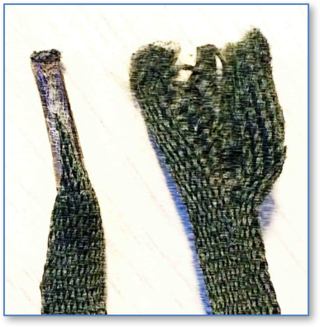
Depression
Telomere Length and Depression
Healthy genetic structure may mean better mood
Posted February 5, 2017

The effectiveness for antidepressants are unfortunately not as high as someone suffering from depression might like.
According to a 2010 Journal of the American Medical Association study, common antidepressants may not work much better than placebo (a sugar pill) for mild and moderate cases of depression. For many patients taking antidepressants, there seems to be almost a randomness to finding an effective medication. The patient will start with one medication, then wait at least four to six weeks for a possible improvement in mood, and then possibly bouncing to a new medication, or adding a medication to an existing drug.
This back and forth is both exasperating for the doctor prescribing the drug and certainly not best for the patient, who just wants to start feeling better.
Telomeres
There’s an aspect of your genetic structure called telomeres that may help us understand if a drug might work for a particular patient. Telomeres are basically little caps at the end of your genetic material – sort of like the little covers (called aglets) on your sneaker laces. When the aglet breaks, your shoe string will fray into broken strands. Similarly, when a telomere breaks, your genetic material can start to fray and be subject to getting damaged, which can lead to mental conditions like depression and anxiety and also physical disease like cancer and heart disease. Shorter telomeres are also linked to aging, and diseases like Alzheimer’s.
What Factors Shorten Telomeres?
Telomeres measurements can be gathered from red blood cells or by taking a swab from your inner cheek lining. From this testing, telomeres have been shown to shorten by:
- eating a poor quality diet
- eating more calories than needed
- low vitamin D
- excessive stress
- pretty much anything else that we know isn’t so healthy.
Studies have even shown that when children are yelled at regularly, their telomere length will shorten (another reason to treat our children well).
A study published in early 2016 in the Journal Translational Psychiatry looked at telomere length in patients who had depression along with diabetes. The diabetic patients were insulin resistant, which means the insulin in their body did not work well to lower blood sugar. As a result, these people had higher blood sugars.
Researchers found that for people who took the drug Actos ("pioglitazone" - sounds like a type of Sicilian calzone, but it's actually a drug that can lower inflammation and blood sugar), their telomeres lengthened and these patients responded better to antidepressant treatment. Possibly, this may because lower blood sugar creates less damage to genetic material. Less genetic damage may create healthier brains.
How Can We Naturally Lengthen Telomeres?
Antidepressant drugs may help patients with depression possibly at a better rate in those who have longer telomeres. Drugs like pioglitazone may help diabetes by lowering inflammation as well as blood sugar. However, both of these drugs do have side effects (like weight gain, tooth issues, and bladder cancer), and do not heal the underlying reasons why people get depressed or have diabetes, respectively.
In my experience as a naturopathic doctor, the best way to help heal mood and lengthen telomeres is to go after the underlying reasons a patient is depressed, and give natural support to reverse diabetes. This will include creating a healthy regimen that includes lifestyle, dietary, and supplemental support together. I talk about these in detail in my book How Come They’re Happy and I’m Not?
The steps I recommend to help lengthen telomeres, lower blood sugar and lower inflammation – all of which can help balance mood include:
1 – good quality sleep: at least 8 hours a night
2 – minimizing stressors: whenever you can
3 – using stress reduction techniques: like meditation and acupuncture. These have shown to improve telomere length.
4 – exercising and minimize sitting: try to build muscle, for this is the best way to reverse insulin resistance
5 - eating a low glycemic anti-inflammatory diet: the Mediterranean Diet which is a plant-centered food plan may be the best generalized food plan to try, although I prefer working with each individual to check for food sensitivities and other variables.
6 – a good quality multivitamin: one 2009 study in The American Journal of Clinical Nutrition surveyed 586 women who took multivitamins found 5% increases in telomeres during aging, when it was expected to only shorten. In our clinic we use a comprehensive multiple called Source I Nutrients.
Peter Bongiorno, ND, LAc. is President of the New York Association of Naturopathic Physicians. He authored, How Come They’re Happy and I’m Not? The Complete Natural Guide to Healing Depression for Good (Red Wheel), the practitioner-guide Holistic Therapies for Anxiety and Depression (WW Norton). His newest book is, Put Anxiety Behind You: The Complete Drug-Free Program. Visit drpeterbongiorno.com, InnerSourceHealth.com , www.3UNeed.com and join him on twitter @drbongiorno for updates on naturopathic mental health.
References
Fournier JC, DeRubeis RJ, Hollon SD, et al. Antidepressant Drug effects and Depression Severity: A Patient-Level Meta-Analysis. JAMA : the journal of the American Medical Association. 2010;303(1):47-53.
Rasgon N., et al. Telomere Length As a Predictor of Response to Pioglitazone in Patients with Unremitted Depression. Translational Psychiatry. 2016 Jan; 6(1): e709.
Xu Q, et al. Multivitamin Use and Telomere Length in Women. Am J Clin Nutr. 2009; 89 (6): 1857-63



